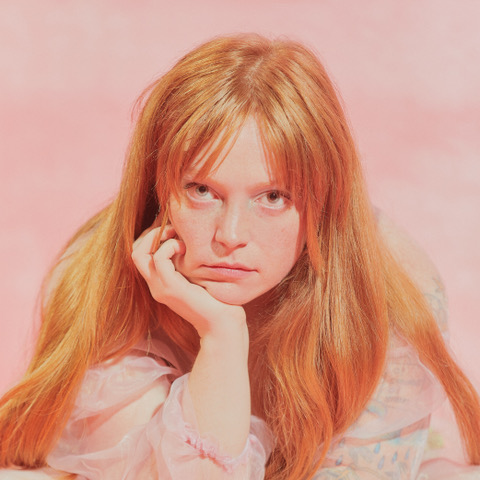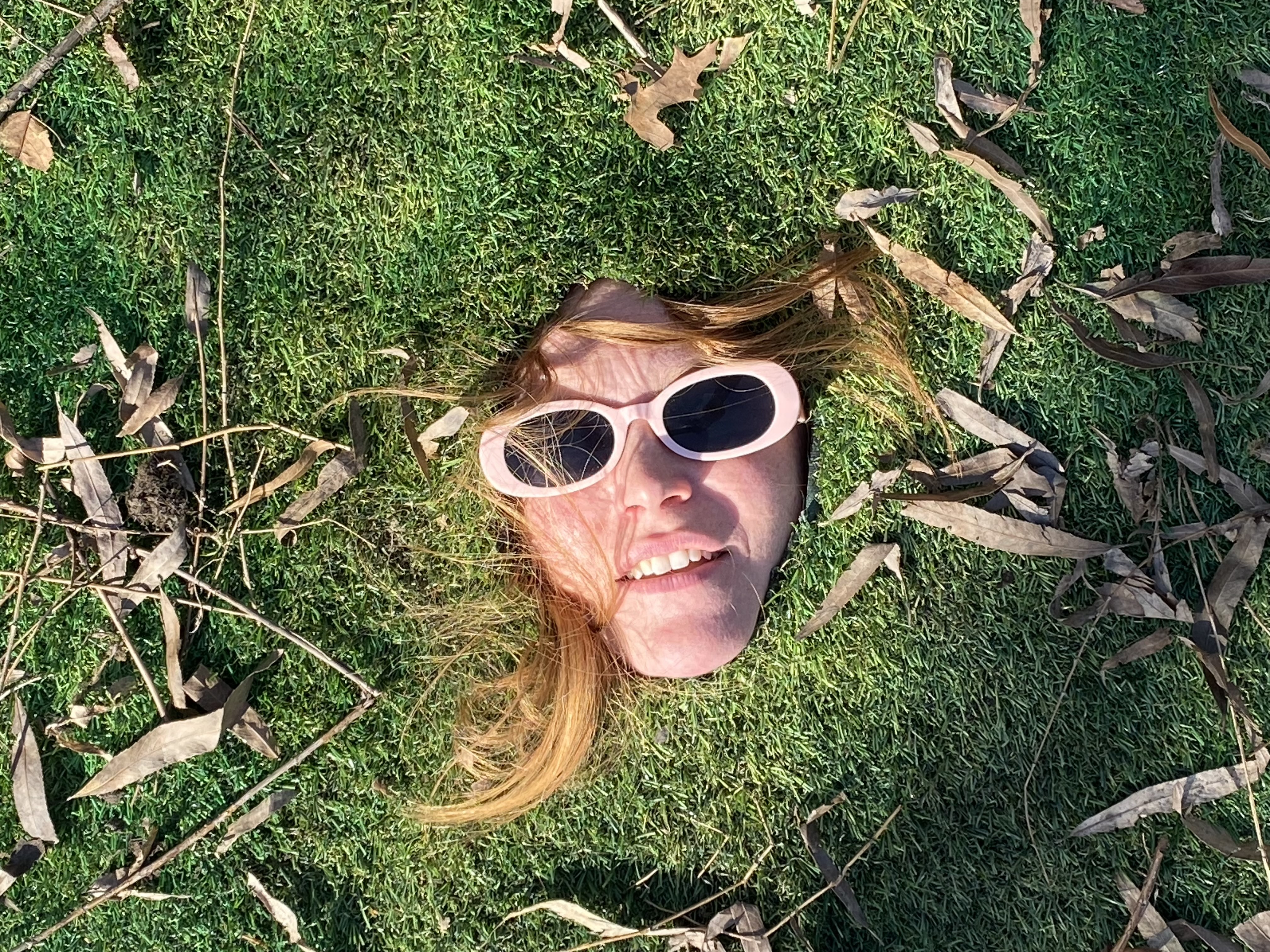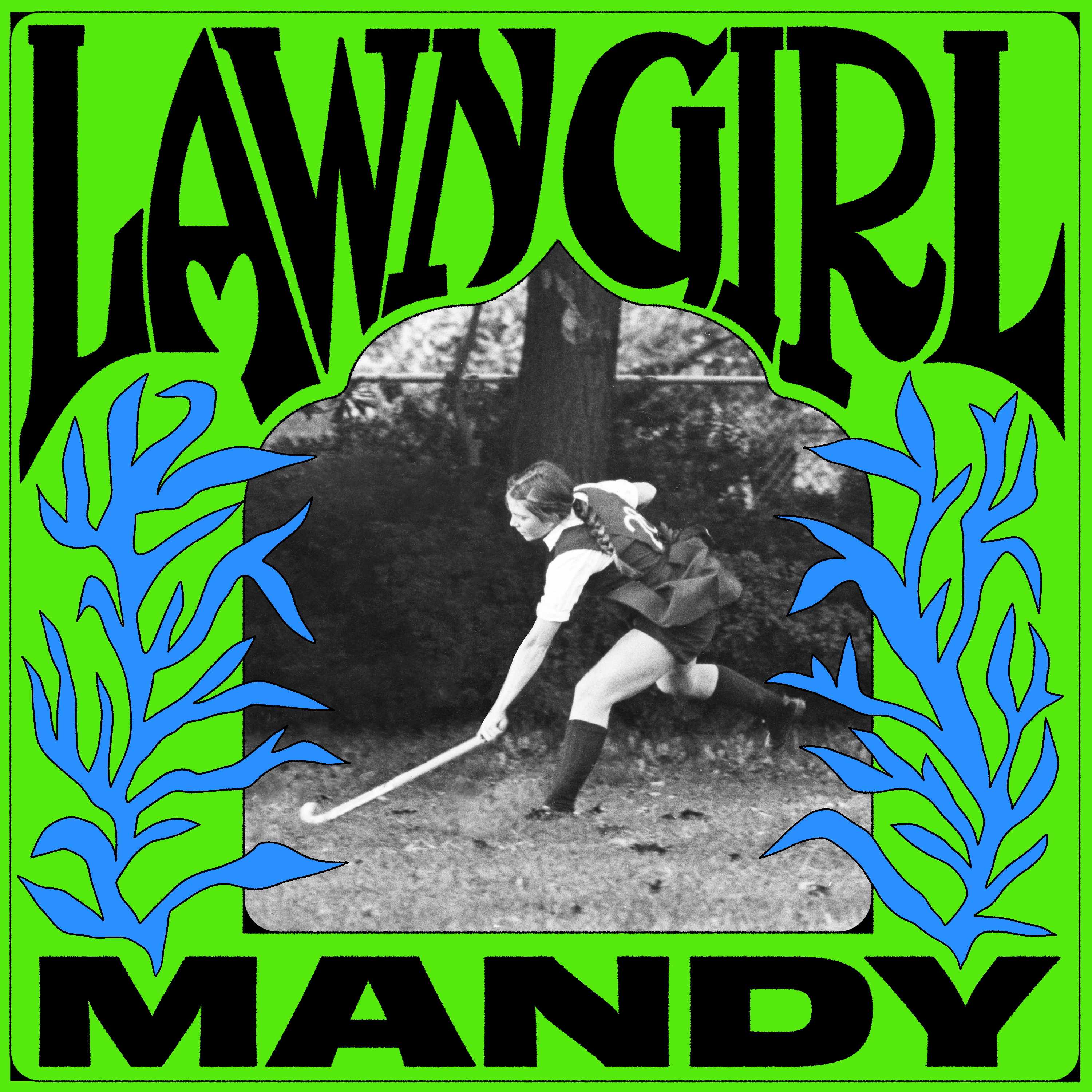MANDY
Lawn Girl
Out 4/26/24 via Exploding In Sound Records
Miranda Winters, as the voice of Chicago’s much-loved noisemakers Melkbelly, has spent the past few years happily in her own shadow. While she has quietly written and occasionally released her own music for 15 years, Winters finally steps out into the bright light with the release of Lawn Girl, the debut album under her Mandy moniker.
The album, a combination of older songs and newer creations, feels positively and endearingly alive–like a freeing of pent-up energy, an intimate rebuilding of the self. While Winters recorded and produced a number of the songs herself, she worked with Taylor Hales at Electrical Audio to feed those songs back into the studio, where they were re-recorded with room mics and worked back into the original versions. “I see it like photocopying,” she says of the process. “I’ve always loved working with photocopying and related printing techniques in my visual art because of the way everything decays and falls apart. It was nice to honor that on the record.”
Performed by an all-women band–Linda Sherman (guitar), Lizz Smith (bass) and Wendy Zeldin (drums)–the songs on Lawn Girl suitably find Winters ruminating on the idea of femininity; about her mom (who graces the album cover) and being a mother herself; her female friends; and what it means and what is required to make art and music in a female space intentionally.
She self-defines the breathlessly unraveling album as “dirty-bubblegum pop rock,” and while Mandy’s sound is packed full with such exhilaration, there are moments where the relentlessness relinquishes, instead offering up tender, yet equally weighty moments. Lawn Girl’s swirling amalgamation of noise and rock influences leans into its love of Veruca Salt, Sonic Youth, and Liz Phair, but never takes its eye off what’s buried just under the surface: the distinctive singer-songwriter style of Connie Converse, the hushed, scrappy bruising of Elliott Smith.
Blistering opener “Forsythia,” a song about travel and change, immediately sets the tone for the majority of what follows through a muscular blend of claustrophobic instrumentation that’s pointedly heavier than anything we’ve previously heard from Winters’ solo work. Lead single “High School Boyfriend” rips through its two minutes via an infectious whirl of squalling guitar, withdrawn vocals, and closing choral shout. Elsewhere, “Elder Fire”–a murkier, more sonically unsettled track about the power of youthhood friends–rattles like heartfelt declarations shouted into a rusty tin can and epitomizes the albums’ restless edge; a stifling, murky cover of Jimmy Webb’s “Now That I’m A Woman” (from The Last Unicorn soundtrack) ruggedly encapsulates the overarching theme of transition found across Lawn Girl. “To me this song represents bursting from a cocoon and wondering what the fuck is going on,” Winters explains. “And inching toward the realization that our most authentic selves are often who we were when we started.”
Equally adept when recalling teen love as it is about reflecting on the relentless complexities of adulthood, Lawn Girl feels like both a beginning and an end: a line in the sand moment for a songwriter who has never stopped questioning where they are and how they got here. “When I think of these songs all together, I see the color green,” Winters says. “I’m seeing green for the very clichéd reason that the record feels like a rebirth, or a turning point, or a transition into a new phase of life. Some of this material has been floating around with me for a while, and I feel that by packaging it all up, I can say goodbye and move forward.”
(Tom Johnson)





